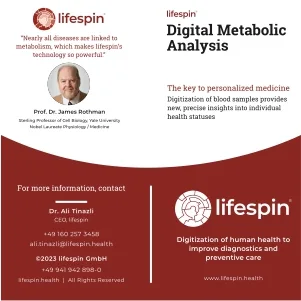Doha, Qatar- 22 April 2024- The prestigious Genome Medicine journal has published a study by Sidra Medicine, a member of Qatar Foundation, on rare genetic diseases in a diverse Middle Eastern cohort from Qatar.
Titled Burden of Mendelian Disorders in a Middle Eastern Biobank, the study provides key insights into the distribution of risk for genetic diseases in Qatar, which will help with public health planning for the country’s population and that of the wider region.
Led by Dr Khalid Fakhro and Dr Younes Mokrab from Sidra Medicine and in collaboration with the Qatar Genome Programme (QGP), Qatar Biobank (QBB), and Hamad Medical Corporation (HMC) the study analyzed more than 6,000 whole genomes and corresponding health data from Qatar.
Also Read: Philips Museum opens new exhibition brAInpower on artificial intelligence
Dr Khalid Fakhro, Chief Research Officer at Sidra Medicine and principal investigator of the study, said: “Collectively rare diseases impact up to 5.9 per cent of the world’s population, and many of these remain under-studied and lack effective treatments. In addition, rare diseases are elevated across the MENA and GCC populations, and studies like this help us understand the genetic architecture driving these conditions, which speeds up diagnosis times and allows us to explore avenues for personalized therapies in the future.”
Co-first authors and postdoctoral fellows, Dr. Waleed Aamer and Dr. Aljazi Al-Maraghi from Sidra Medicine said: “The study represents a big step forward as it provides a comprehensive assessment of genetic diseases among the Qatari population. This is also the first time we have looked into the impact of consanguinity at such scale which showed variations between Qataris with regard to risk of genetic diseases.”
Dr Younes Mokrab, Director of Population and Genomics Medicine and a joint corresponding author added: “Due to the high level of diversity, understanding the landscape of rare diseases in Middle Eastern populations has been challenging. However, using genetic variation patterns, we were able to delineate clusters of sub-populations having common ancestry, representing the wider region of the Middle East.”
Dr. Hamdi Mbarek, Manager of Qatar Genome Research Consortium, commented “This research underscores the crucial role of genetic insights in informing tailored therapies and effective public health planning, not only for Qatar but also for the wider region”.
By establishing a catalogue of Mendelian genetic variants, the study can also help improve annotation of global public genetics databases (ex., ClinVar database), especially for genetic variants that are common in the Qatari population and underrepresented in other databases.
Ultimately, baseline genome studies such as the one by Sidra Medicine can help healthcare systems allocate resources more efficiently by targeting interventions to those patients who are most likely to benefit based on their genetic profile. This personalized approach can improve patient outcomes while optimizing the use of healthcare resources.

















